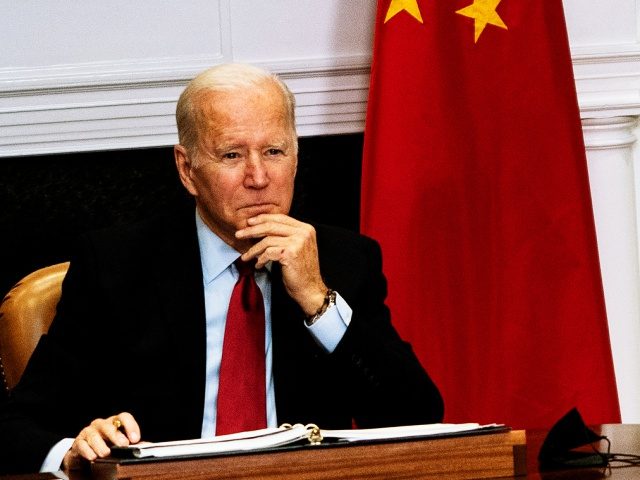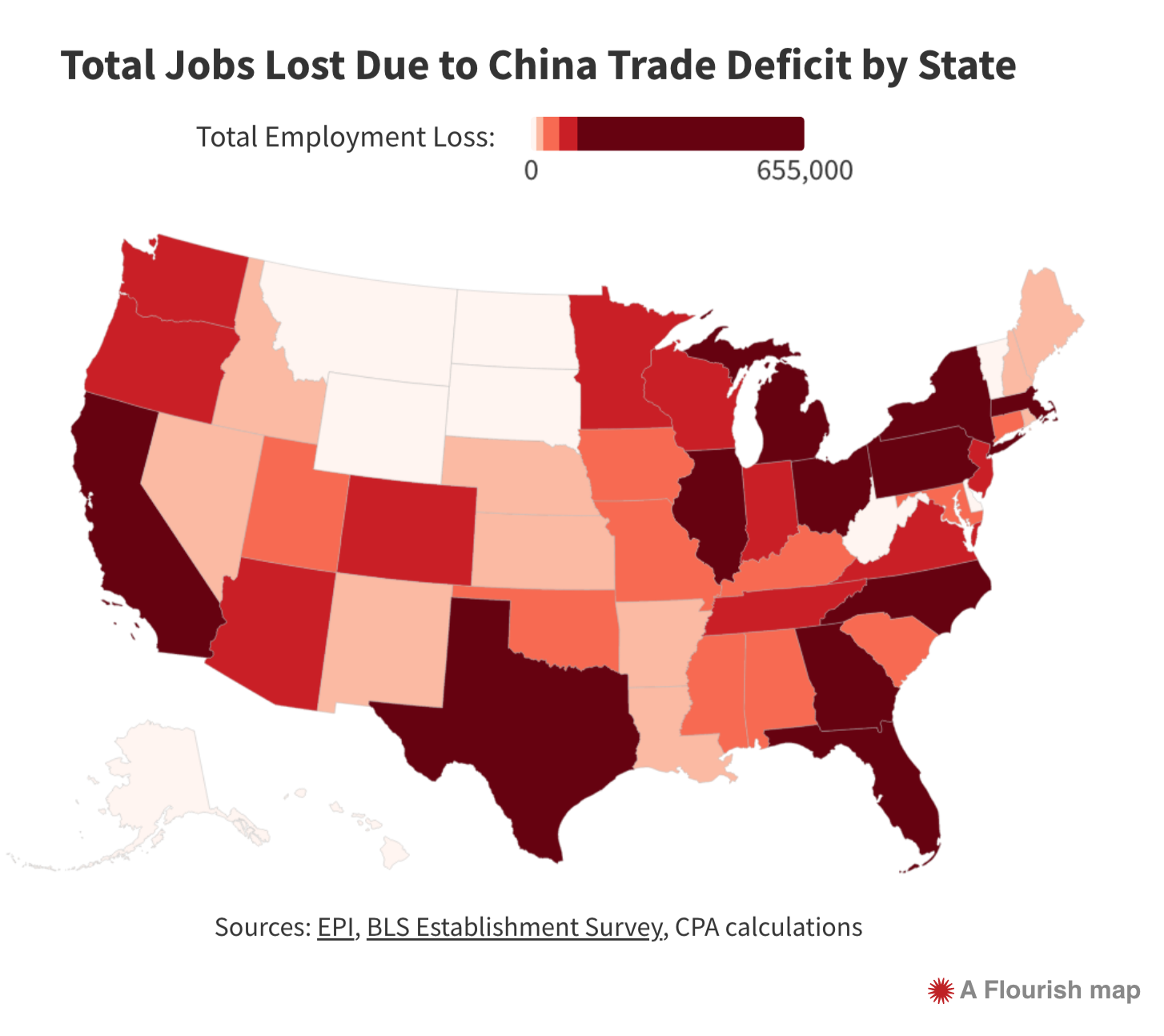President Joe Biden is likely to decide sometime before the end of the year whether to keep billions of dollars worth of United States tariffs on China-made goods, officials suggest.
U.S. Trade Representative (USTR) Katherine Tai, an economic nationalist, is currently reviewing the billions of dollars worth of tariffs on China-made goods in accordance with trade laws that require tariffs to be reviewed every four years.
The China tariffs were first imposed in 2018 and 2019 by then-President Trump to counter decades of free trade policy that helped eliminate nearly four million American jobs in the last two decades.
In an interview with Reuters, USTR officials suggested that the review process is likely to wrap up before the end of the year. Industry insiders expect a decision to be made around September.
The China tariffs worked to usher in a much-needed manufacturing boom across the U.S. while not raising prices for American consumers. Likewise, a study from the Economic Policy Institute (EPI) notes that there is no connection between tariffs and inflation.
Biden has hinted at further entanglement with China in recent weeks.
At the G7 Summit, Biden vowed that his administration is “not looking to decouple [the United States] from China.” That statement came after he vetoed a bipartisan-approved plan that would have reinstated U.S. tariffs on China-made solar panels — siding with the highly powerful import lobby against American manufacturers.
Last year, when Biden’s USTR began the review process, the United Steelworkers (USW) pleaded with the administration to keep the China tariffs in place.
“Too many U.S. companies have failed to take needed actions to address the threat posed by Chinese Communist Party (CCP) policies,” USW executives wrote. “Many continue to outsource production, and research and development, undermining U.S. competitiveness and national security interests … our government must act in the national interest to strengthen our economy for the future.”
The United Steelworkers union, along with other manufacturing groups, says former President Trump’s tariffs on imported steel “have been a success,” urging President Joe Biden to keep the tariffs in place. https://t.co/rVxV472sFR
— Breitbart News (@BreitbartNews) May 22, 2021
A number of Republicans want Biden to go even further than keeping existing U.S. tariffs on China. Sens. Tom Cotton (R-AR), Ted Budd (R-NC), Rick Scott (R-FL), and J.D. Vance (R-OH) have proposed legislation that would end the nation’s free trade policy with China altogether.
Similar legislation from Sen. Josh Hawley (R-MO) would do the same.
From 2001 to 2018, United States free trade with China eliminated 3.7 million American jobs from the economy — 2.8 million of which were lost in American manufacturing. During that same period, at least 50,000 American manufacturing plants closed down.

Weeds grow in the parking lot of the closed Culp Weaving plant in Burlington, Noerth Carolina, on June 8, 2009. The upholstery giant moved to China to take advantage of cheaper labor. (Jim R. Bounds/AP)
Those massive job losses have coincided with a booming U.S.-China trade deficit. In 1985, before China entered the World Trade Organization (WTO), the U.S. trade deficit with China totaled $6 billion. In 2019, the U.S. trade deficit with China totaled more than $345 billion.
While skyrocketing U.S. trade deficits have led to devastation across America’s working- and middle-class communities over the last two decades, tariffs would be a boon for reshoring jobs and boosting wages, studies show. One such study finds that tariffs on nearly all foreign imports would create about ten million American jobs while boosting domestic output.
John Binder is a reporter for Breitbart News. Email him at jbinder@breitbart.com. Follow him on Twitter here.


COMMENTS
Please let us know if you're having issues with commenting.